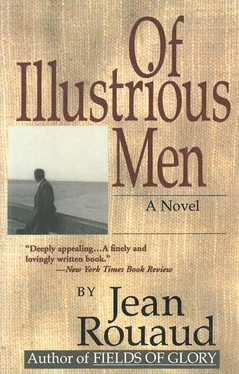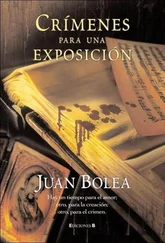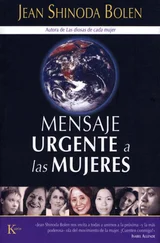Jean Rouaud - Of Illustrious Men
Здесь есть возможность читать онлайн «Jean Rouaud - Of Illustrious Men» весь текст электронной книги совершенно бесплатно (целиком полную версию без сокращений). В некоторых случаях можно слушать аудио, скачать через торрент в формате fb2 и присутствует краткое содержание. Год выпуска: 2011, Издательство: Arcade Publishing, Жанр: Современная проза, на английском языке. Описание произведения, (предисловие) а так же отзывы посетителей доступны на портале библиотеки ЛибКат.
- Название:Of Illustrious Men
- Автор:
- Издательство:Arcade Publishing
- Жанр:
- Год:2011
- ISBN:нет данных
- Рейтинг книги:4 / 5. Голосов: 1
-
Избранное:Добавить в избранное
- Отзывы:
-
Ваша оценка:
- 80
- 1
- 2
- 3
- 4
- 5
Of Illustrious Men: краткое содержание, описание и аннотация
Предлагаем к чтению аннотацию, описание, краткое содержание или предисловие (зависит от того, что написал сам автор книги «Of Illustrious Men»). Если вы не нашли необходимую информацию о книге — напишите в комментариях, мы постараемся отыскать её.
Of Illustrious Men — читать онлайн бесплатно полную книгу (весь текст) целиком
Ниже представлен текст книги, разбитый по страницам. Система сохранения места последней прочитанной страницы, позволяет с удобством читать онлайн бесплатно книгу «Of Illustrious Men», без необходимости каждый раз заново искать на чём Вы остановились. Поставьте закладку, и сможете в любой момент перейти на страницу, на которой закончили чтение.
Интервал:
Закладка:
He is alone in a corner of the kitchen, listening to his records. He has moved a chair over by the record player, his cigarettes, lighter, and ashtray within reach on a little shelf. When he especially enjoys a song he immediately plays it again, lifting the arm and moving it back to the beginning very carefully so as not to scratch the disk. The shop doorbell, fixed just above the record player, adds a strident note to the choruses. He keeps putting off the moment of going to church, although the bell summoning the faithful to eleven o’clock Mass rang a long time ago. This lack of assiduity may well have more deep-seated reasons. He has recently confided his doubts to the cure and, in quite a different vein from his usual menacing sermons, Father Bideau has told him that even the greatest mystics experienced these torments of the dark night of the soul. It is flattering to be placed in such company, but for the only faith that matters, the simple faith of the common man, it’s not a lot of help. And as an illustration of this flaw, Bideau was to turn up too late to give him the last rites.
As soon as he’d put the ladder and the saw away and taken the branches he’d pruned into his workshop, intending to cut them up later, he told us he was going upstairs to lie down. This is such an unusual occurrence in the middle of the afternoon that you are asked not to make so much noise — Your father’s tired — since the kitchen where you’re playing is just underneath his bedroom. So you sit at a corner of the table and draw, or start a game of cards in silence. You don’t suspect, though, that this is the beginning of a kind of vigil. On New Year’s Day, Mathilde, Cousin Remi’s mother — they live together next door; their house adjoins ours — confessed rather shamefacedly, almost apologetically, as if she were making the unthinkable worse, that she had attributed his indisposition to the previous day’s chocolates.
In the evening, when it’s dinnertime, he doesn’t come down but stays in bed. He probably drank the soup that was taken up to him, or maybe he said he didn’t want anything. In which case you let him go on resting. You don’t see him again until you yourself are going up to bed. It must be about ten o’clock and you go into his room timidly to kiss him good night. You don’t notice anything special: it’s just your father in his pajamas, his back supported by the pillows, reading in the cone of light coming from his bedside lamp. It’s a familiar sight — what is there in it to give you cause for alarm? As the next day, December 27, is the feast of Saint-Jean l’Evangeliste, Saint John the Divine, he doesn’t forget, as he kisses you, to wish you a happy name day. This man frightens you a little, even though he has never lifted a hand against you, but his authority is imposing and often renders you silent. So what are you going to feel when you hear, years later, that the reason he wanted you to be christened Jean was because that was the name of the beloved disciple whose feast day falls on that date? And anyway, you too are attached to the name and you never fail to protest whenever someone mixes him up with the other Jean, the twenty-fourth of June one, John the Baptist, the one who got beheaded. Much later still it will occur to you that it was also Saint John the Divine, the favorite, who recorded, “This is the disciple which testifieth of these things, and wrote these things.”
Sometimes you’ll find yourself telling people that his last words to you were to wish you a happy name day. Not so much because you want to improve on the truth (“and we know that his testimony is true”), but because it is an end that doesn’t gain much by the coda that consists, at your mother’s request no doubt, of taking him his lighter. Unless you did it on your own initiative. Because you don’t really know how to approach this transitory father, you sometimes hope that doing this or that might get you in his good graces. So you go back to his bedroom, still timidly, and it isn’t his illness that occasions your prudence — it’s increased by the fear he inspires in you, which makes it difficult for you to act spontaneously.
You put the lighter down on the bedside table, hoping it will earn you a good mark in the form of that smile, which, now that you’ve tracked it down in his photographs, you can clearly see was characterized by kindness. It doesn’t occur to you that the fact that he hasn’t had a cigarette since the middle of the afternoon could be interpreted as a worrying sign. And anyway, he had several times declared he was going to give up smoking. Because the doctor had advised it? That would be a pity for the lighter, a fortieth-birthday present, a stainless steel lighter with a little toothed wheel on one side and a knob on top that releases the gas when you press it — a simultaneous double operation for which you need both hands. However many times your father explains how it works, showing you where to put your thumb and forefinger, cupping your hand in his, the lighter remains one of those Rubicon objects that demarcate the territory of childhood.
He thanks you. This time, these really are his last words. All you will ever hear from him now is a dreadful death rattle, dwindling as the minutes go by, when he is lying on the bathroom floor and entering his mortal agony.
You go back to your room. You slide under the two blankets and the bulky goose-feather eiderdown, kicking the scalding rubber hot-water bottle to the bottom of the bed. In its flannelette cover, it has been put there before bedtime and warmed the sheets while it was waiting for you. Outside, the wind is increasing to gale force and making the metal shop sign creak, as well as the advertising board of the nearby service station, hanging on its chains from the crosier at the top of a pole. Merged with these moans is the clatter of the slates being blasted off the roofs and smashing down below. Or it’s some unknown object coming charging down the village street with the violent wind on its tail, or a shutter flapping, a bench being overturned, or a flowerpot jumping off a first floor window ledge without a safety net. The Lower Loire is accustomed to these sudden changes of mood, which soothe rather than disturb your slumbers.
Nice and safe, nice and warm, you’re reading Le Colonel Chabert. Given the jacket, with its illustration of a knight by Gericault, it was certainly an abridged version for children, but when you wonder whether you were a precocious reader, you will remember that there was a more pressing reason than boredom for your having stopped reading a Balzac novel on the day after Christmas when you were eleven years old. In the next room — the connecting door is kept permanently open to let the warm air circulate more easily — your sisters are also reading. The bedtime chatter has stopped and is now replaced by the rustle of the pages being turned as a prelude to sleep. Suddenly, drowning the pandemonium of the storm, a muffled sound, this time from inside the house, jerks you out of your reading, it sounds as if a heavy body has fallen, and it’s immediately followed by a startled cry coming from your mother. You scramble out of bed and rush over to the bathroom. You try to push the door open, but there’s an obstacle on the other side, you try harder, but your mother, almost screaming, tells you to go around the other way. You pass through their bedroom, which is lit only by the bedside lamps so three quarters of it is in semidarkness. The double bed is empty, its blankets pushed back. In the adjoining bathroom, with its crude neon lighting, you find your father lying on his back on the gray linoleum, his eyes closed, his mouth open, his legs blocking the door to the landing. He is breathing heavily, raucously, as if there was an obstruction in his throat. Bending over his tall, dying body, your mother grips him by the shoulders, tries to sit him up, then takes his inert face in her hands. He had felt unwell — quick, we must call the doctor — he had tried to stand up — in the mirror over the sink she had seen his face suddenly become contorted, and just as she was about to rush over to him she had seen his body collapse backward. The fall, the floor shaking, the doctor, call him quickly, he hit his head against the wall as he fell.
Читать дальшеИнтервал:
Закладка:
Похожие книги на «Of Illustrious Men»
Представляем Вашему вниманию похожие книги на «Of Illustrious Men» списком для выбора. Мы отобрали схожую по названию и смыслу литературу в надежде предоставить читателям больше вариантов отыскать новые, интересные, ещё непрочитанные произведения.
Обсуждение, отзывы о книге «Of Illustrious Men» и просто собственные мнения читателей. Оставьте ваши комментарии, напишите, что Вы думаете о произведении, его смысле или главных героях. Укажите что конкретно понравилось, а что нет, и почему Вы так считаете.












